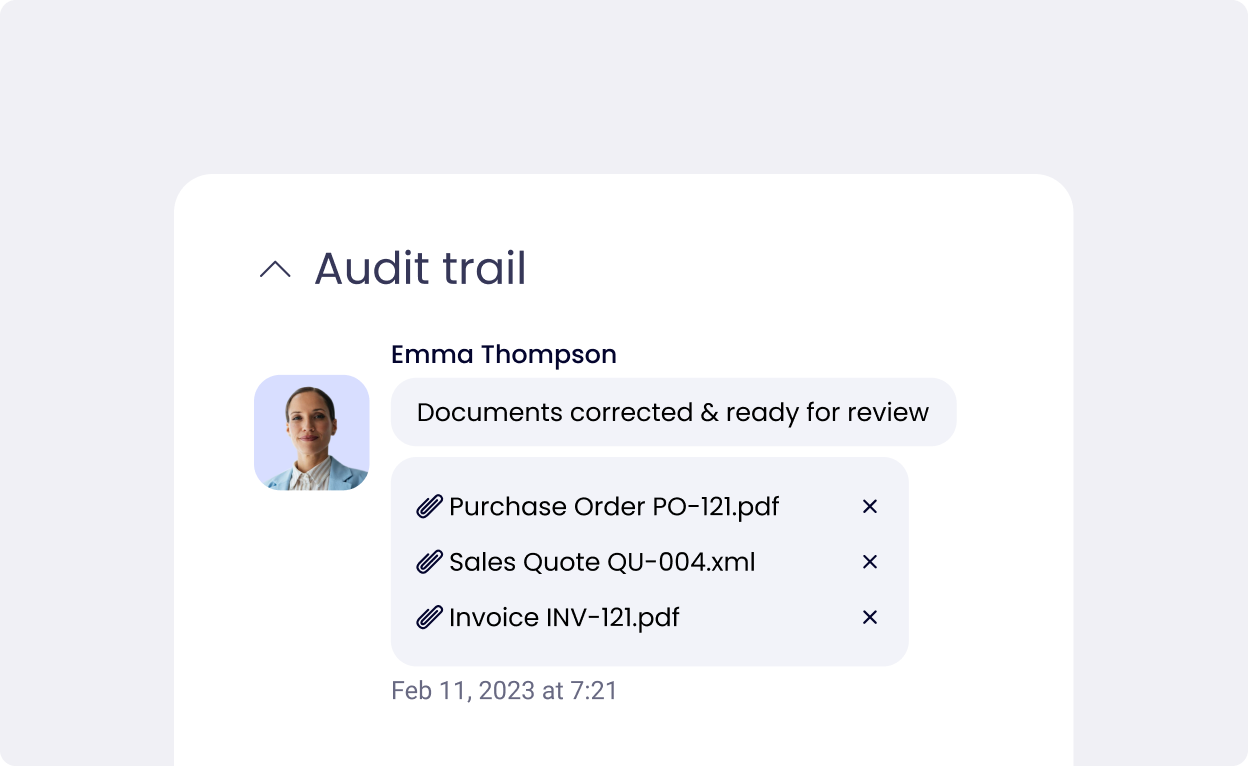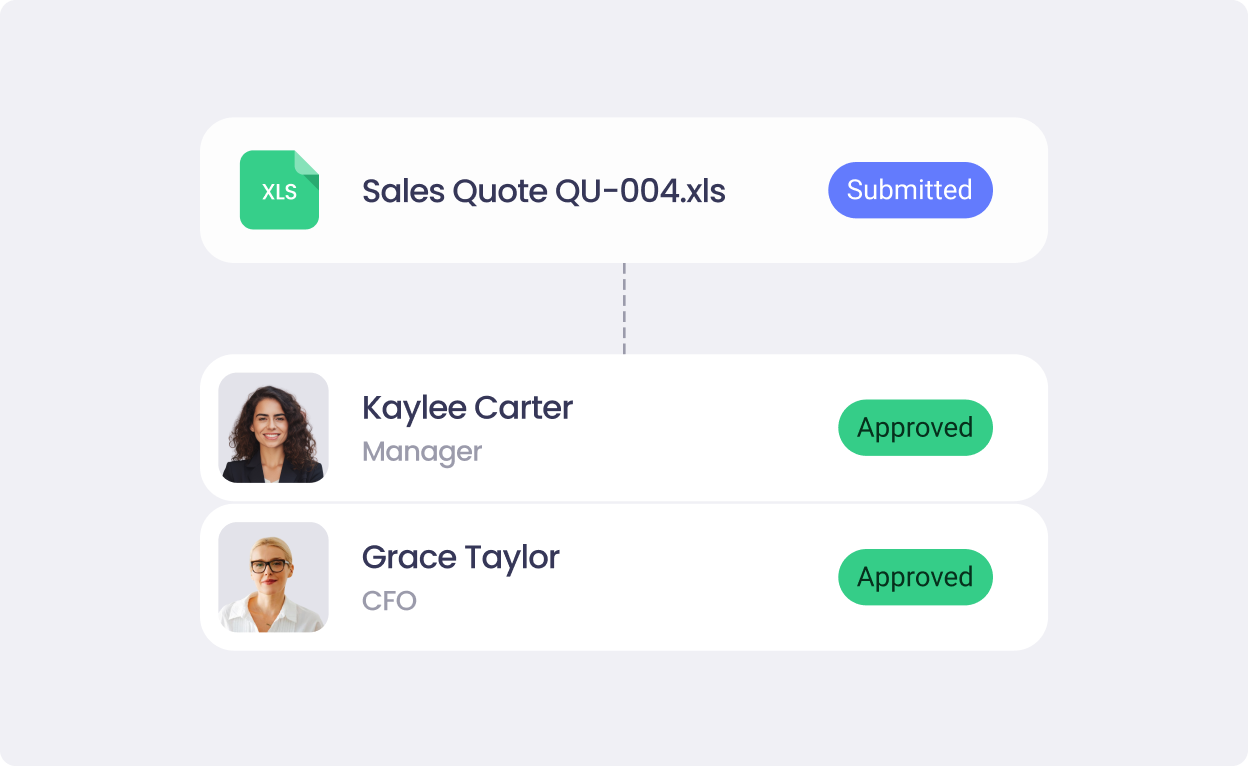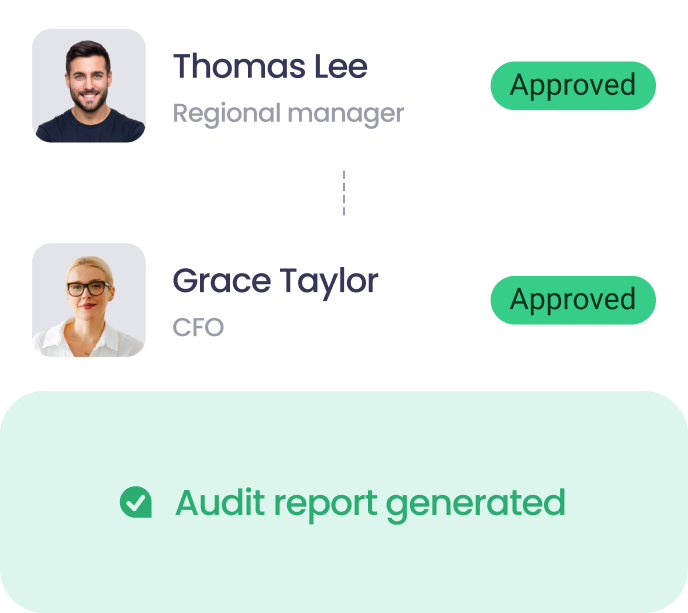
The essential financial controls all businesses should use
This shows that a huge portion of businesses are still vulnerable and are not on top of financial processes, or do not have adequate checkpoints and guardrails. These simple steps can help with compliance, reduce risk, and boost overall productivity by simply making many tasks easier.
Robust financial controls enable companies to have financial stability and reduce the risk of fraud from occurring, while generating accurate accounting and financial data that can be used to aid agile decision-making.
Research commissioned by PwC has shown internal financial controls do indeed work – two-thirds of organisations that experienced fraud discovered their most disruptive incident through financial controls. No matter this size of your business, now is the time to build good habits and put these essential steps in place, instead of putting it off.

What are financial controls?
Financial controls are policies and procedures that are put in place to keep financial records in check and protect company assets. Along with preventing or detecting accounting errors, they also help find and deter fraud, such as account skimming, misappropriation of assets, or false expense claims.
Most larger organisations have fairly extensive financial controls due to the size of their teams. They may implement stricter controls, such as automated workflows and multi-tiered approvals, to maintain oversight over complex financial processes. Smaller businesses, on the other hand, tend to have less rigor around these processes – it’s not uncommon for one person to handle most financial tasks. For example, a small business might use financial controls to prevent a single employee from both processing and approving payments, reducing the risk of fraud. Adding controls not only makes their lives easier and the business safer in the long term, but also those of their accounting and bookkeeping partners.

Essential Financial Controls for Businesses
Here are six essential financial controls businesses of all sizes should put in place for smoother and more secure operations:
As in most situations, it’s best to not have one person in control of everything. Segregating duties means that no single employee has total control over a financial transaction – like processing invoices or approving expense claims. This improves the accuracy of financial data and minimises the risk of fraud.
Tasks that should be segregated include booking journals and making payments.
When setting up a workflow, the more junior employee should book the journal or set up the payment and the more experienced team member authorise or book the transaction.
While these processes should involve a minimum of at least two individuals, companies should plan for when staff are on annual leave with alternate workflows so time-sensitive transactions can still go ahead.
Reconciliations aren’t a once-off – they should be done regularly. This process of matching accounting to source data keeps financial information up to date and can pin-point errors or anomalies that can undermine the integrity of financial records.
For example, discrepancies between bank statements and accounting records are a common issue during reconciliation. Reconciling accounts weekly will make it easier to fix errors, helping to stay on top of banking, payroll records, and fixed asset registers. Retail businesses with a physical shop front should reconcile cash takings against transaction records, while those operating online should remember to reconcile digital transactions.
Financial controls include setting up who is responsible for what. Limits on who can authorise or approve transactions above a certain amount can keep tighter reins on spending, helping companies to stay on budget and make sure any spending policies are consistently applied throughout the business.
These authorisations and approvals should apply to employee expenses as well as supplier invoices.
An effective way to do this is to insist on raising purchase orders for invoices over a specific amount.
Tools like ApprovalMax can streamline these transactions by creating automated approval workflows related to managing purchase orders or employee expenses. By automating these, actions can progress easily without having to manually chase or nudge the person who’s turn it is next.
While you can set up an authorisation process for transactions above a set amount, it’s still important to track and monitor company spend across all budgets so that expenses are within planned limits.
If you don’t check budgets before giving approval to pay bills and invoices, it can cause working capital issues.
This makes it harder to pay suppliers on time and increases the likelihood of needing short-term funding, which isn’t ideal in the current high-interest rate environment.
Certain tools simplify, or even automate, this process. Where possible, seek out cloud-based options that compare company budgets to live accounting data, inspect and document variances.
When businesses neglect to monitor budgets in real-time, they risk overspending and running into cash flow shortages. By integrating live accounting data with financial controls, companies can avoid these issues and ensure financial stability
New legislation, like Making Tax Digital (MTD), and an increase in fraudulent activity make it more critical than ever for businesses to establish compliance checks in their finance departments.
Thankfully, there are ways to make sure your business is compliant across a number of areas. Businesses should implement anti-money laundering (AML) and Know Your Customer (KYC) procedures to check suppliers are legitimate and manage any associated risks.
These usually include obtaining original documentation, such as company registration details and, where relevant, VAT numbers. It’s worthwhile also finding information on company directors to see if they’ve recently managed companies which have gone insolvent.
If offering customers payment terms, run credit checks during the onboarding process and regularly monitor them for adverse financial events, such as County Court Judgements (CCJs).
Maintaining details of who has created and approved transactions keeps finance team members accountable and makes it easier to interrogate large and unusual transactions during an audit.
The good news is many modern ledger software vendors automatically maintain an audit trail, including ApprovalMax. This can be run as a filtered report, listing initial transactions and any changes will be date stamped with specific user details, and is particularly useful at month-end when financial controllers may need to fix entries that weren’t input correctly.
Third-party add-ons, such as ApprovalMax, can provide comprehensive audit and fraud control features not covered by ledger software, including accounts payable and accounts receivable workflows, purchase order management, payments, invoicing, and quotations.
Putting financial controls into place
Setting up financial control processes doesn’t have to be complicated or painful. In fact, you often end up saving huge amounts of time in the long run, especially when adding automation to the mix.
Neglecting financial controls and postponing process development is a common tendency. Often, the significance of these measures isn’t fully recognised until a crisis occurs, resulting in substantial expenses and hardships. Many businesses fail to grasp the potential severity of the consequences. It’s crucial to address these controls proactively to safeguard against unforeseen challenges and mitigate potential losses.
Businesses who implement several layers of robust financial controls in their business will have better a financial health score, smoother operational efficiency, better legal compliance, and higher survival rates.
Financial controls aren’t just about preventing fraud – they’re about building a solid foundation of processes for long-term sustainability and growth. Whether you’re a small or large business, setting up essential controls with the right tools and processes makes sure you’re ready for challenges and opportunities ahead.
To learn more about how ApprovalMax makes financial controls easy and automates approval processes, click here.
Ready to Simplify Your Approval Process?
Approvalmax is an all-in-one B2B software platform used by businesses around the world to build robust AP and AR automation, creating multiple layers of internal control. It streamlines the approval process by allowing users to create automated workflows to approve bills and invoices. ApprovalMax integrates with accounting platforms such as Xero, QuickBooks Online, and Oracle NetSuite to unlock powerful efficiencies for accounts payable and accounts receivable functions in any finance team.
Set up a system of checks and balances for your financial operations.
Multi-step, multi-role approval workflows for financial documents.

Auto-generated audit reports for each approved item.

Get alerts for fraudulent activity and protect against it happening.
Leave printing in the past with fully digitised workflows.




